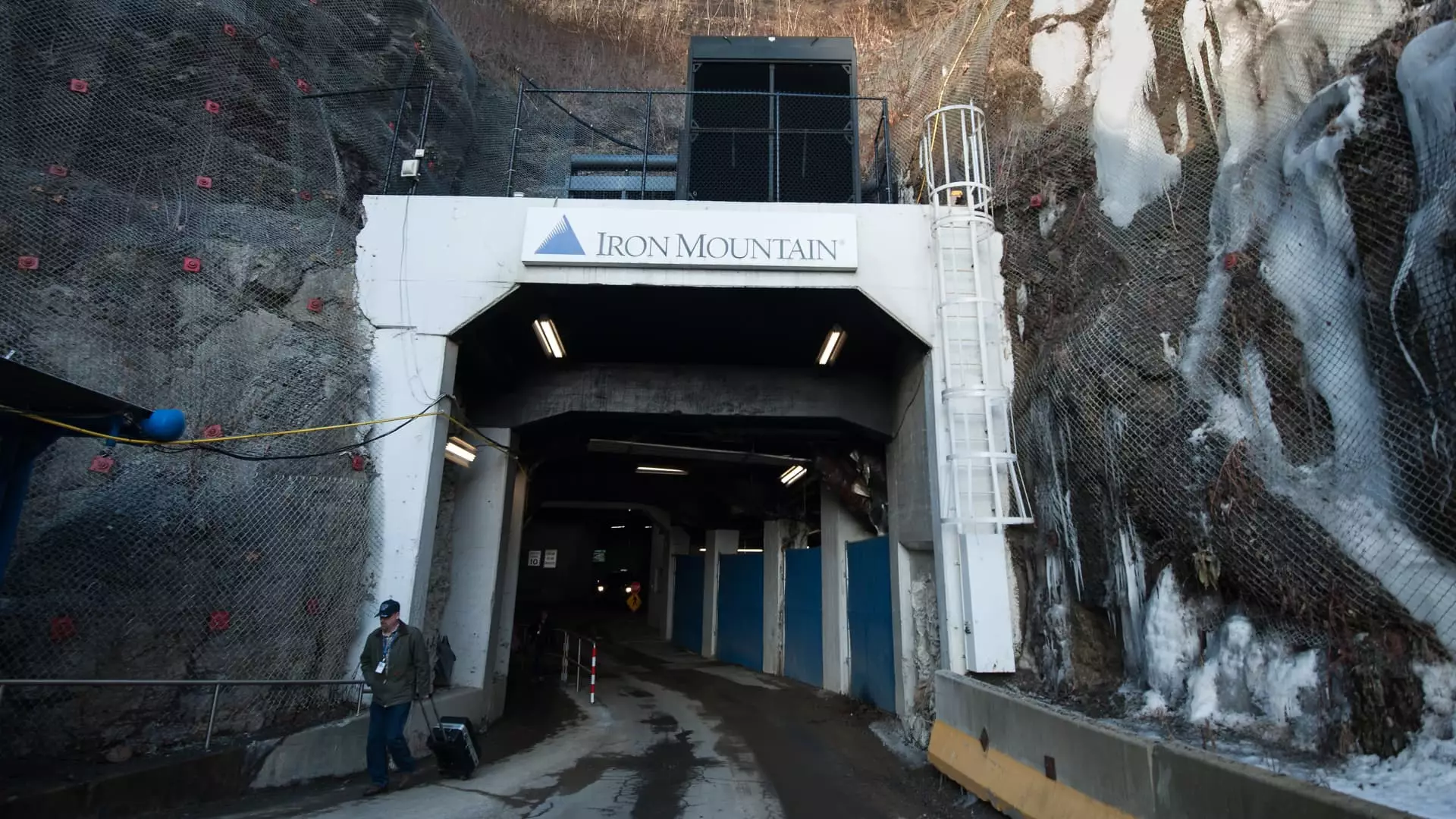In recent years, the intersection of technology and government has garnered considerable attention, especially with the dramatic personalities involved in the conversation. One of the most notable figures, Elon Musk, recently stirred discussions about government inefficiency during a meeting with then-President Donald Trump. Musk’s comments focused on a peculiar aspect of government operations—the storage of retirement paperwork in an outdated limestone mine managed by Iron Mountain. This event not only highlighted the challenges in federal efficiency but also cast a wary eye over the contracts between the government and private companies like Iron Mountain.
Musk’s vivid description of the mine, initiated in 1955, paints a picture of obsolete infrastructure unable to keep pace with modern demands. He likened the facility to a “time warp,” suggesting that such setups are symptomatic of larger systemic inefficiencies. His assertion that the elevator speed in the mine directly dictated the processing of retirement paperwork is alarming, as it underscores the critical need for modernization in government operations.
Iron Mountain has been a significant player in document storage, touting security and reliability. However, Musk’s critiques pose an essential question: how much longer can companies relying on antiquated systems withstand scrutiny under initiatives aiming for ampler governmental efficiency? Notably, Musk’s remarks led to a significant dip—over 10%—in Iron Mountain’s stock shares, signaling investor concerns regarding the viability of their existing contracts in a potentially austere fiscal environment.
Musk’s DOGE, or the Department of Government Efficiency, has emerged as a controversial yet compelling initiative within the Trump administration aimed at cutting the proverbial fat from federal budgets. The emphasis on examining existing partnerships with private contractors is crucial. As Musk pointed out, the existing methods of handling retirement documentation—especially those still operating under archaic systems—call for immediate and substantial reform.
DOGE is not just a critique but a roadmap for businesses engaged with the federal sector, indicating what they might expect in a climate of increased scrutiny and prospective budget cuts. Companies need to reevaluate their operational modalities and align them with the cries for efficiency echoing from the halls of Washington.
In the aftermath of Musk’s comments, Iron Mountain CEO Bill Meaney attempted to mitigate investor concern by framing the situation as a growth opportunity. He pointed to the firm’s ongoing transitions in digital transformation working with federal agencies, a sector witnessing climbing financial projections. Meaney highlighted that Iron Mountain’s revenue from digital services dwarfs its earnings from traditional document storage, revealing a shifting paradigm in the company’s business strategy.
The emphasis on digital solutions represents a broader trend toward modernization that aligns well with DOGE’s objectives. For companies that can pivot adequately, this shift presents a chance to redefine their value proposition, especially in the realm of government contracts. Although Iron Mountain faced immediate repercussions from Musk’s critique, their adaptive approach may be beneficial in the long term.
Wall Street reactions post-Musk’s declarations present a dichotomy. Analysts view the stock decline as an overreaction, with firms like Wells Fargo assuring clients that Iron Mountain’s revenue sources are diversified enough to weather a potential cut in government contracts without significant damage. The crucial distinction here is that the federal contracts, while sizable, do not constitute the entire revenue stream.
Moreover, analysts pointed out that if the government were to terminate its contracts abruptly, Iron Mountain could very well recover termination fees that could bolster its finances. This insight hints that while immediate volatility may prove unsettling, the underlying fundamentals of Iron Mountain’s business are more resilient than they appeared in the wake of Musk’s statements.
The clash between governmental inefficiency and private sector adaptation is poised to influence how federal contracts are awarded in the future. With technological innovation as the cornerstone of efficiency, firms must actively embrace modern practices to maintain relevance in the evolving landscape dictated by initiatives like DOGE.
As government demands for innovation become paramount amid scrutiny, corporate adaptability will dictate who thrives and who falters within the contracting realm. It is clear that in this new era of governmental oversight and technological advancement, companies that fail to adjust their practices risk falling behind, not only in securing government contracts but also in sustaining their competitiveness in a relentlessly evolving marketplace.
Musk’s critiques are not merely personal opinions; they serve as wake-up calls for both governmental agencies and private contractors. The demand for efficiency and modernization is undeniable, and how entities respond to these pressures will shape the future of public-private partnerships.

